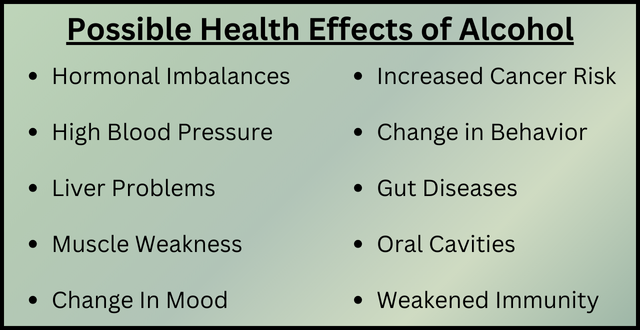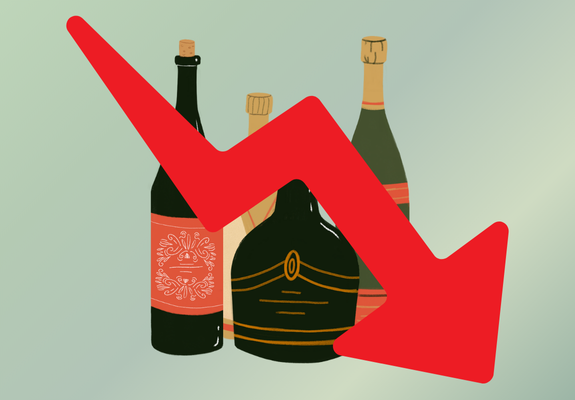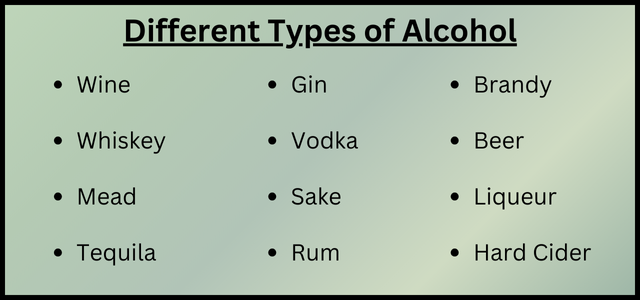Medically Reviewed by Lucas Rosa, PhD in Molecular Biology
Discover how alcohol affects our hormonal health.

The Relationship Between Alcohol & Hormones
Alcohol has a profound effect on the endocrine system which is responsible for hormone production and regulation. Consuming too much alcohol disrupts communication within the endocrine system and leads to hormonal disruptions.
Hormones are chemical messengers that play a critical role in regulating many bodily functions, such as metabolism, growth, and mood. Our hormones are sensitive and rely on an intricate system to regulate bodily functions. If one hormone is disrupted, then it can easily lead to other hormones getting disrupted.
High consumption of alcohol can cause a cascade of negative health effects in our bodies by significantly disrupting our hormones.
Hormones That Alcohol Can Disrupt
These are the hormones that can be affected by alcohol consumption:
- Sex Hormones – these hormones regulate fertility and reproduction
- Stress Hormones – these hormones regulate stress
- Feel-Good Hormones – these hormones regulate mood and overall wellbeing
- Blood Sugar Hormones – these hormones regulate blood sugar levels
- Thyroid Hormones – these hormones regulate energy levels, metabolism, and body temperature
These hormones can get disrupted by alcohol consumption and then could lead to other hormones getting disrupted or other negative health effects.
Furthermore, alcohol impairs the liver’s ability to break down hormones which can increase any existing hormonal imbalances within our bodies.

Alcohol’s Gender-Specific Hormonal Effects
The health effects of alcohol are different for each sex:
Those assigned male at birth may experience a significant drop in testosterone levels, leading to symptoms like fatigue, depression, and decreased sexual performance.
To learn more about how alcohol affects those assigned male at birth, visit drinkaware.
Those assigned female at birth may experience spikes in estrogen levels, which can affect their menstrual cycle and increase the risk of hormone-related cancers.
It’s also worth noting that those assigned female at birth tend to metabolize alcohol differently than those assigned male at birth, often leading to higher blood alcohol concentrations and prolonged effects on hormonal balance.
To learn more about how alcohol affects those assigned female at birth, visit hertility.

Tips For Minimizing Alcohol’s Impact
To minimize the impact of alcohol on hormonal health, it’s essential to limit alcohol consumption. Follow moderate drinking guidelines, up to one drink per day for those assigned female at birth and up to two drinks per day for those assigned male at birth.
Remember that drinking less alcohol is better for your health than drinking more. This can greatly mitigate some of the adverse effects caused by alcohol consumption.
There are plenty of alternatives to alcohol. Non-alcoholic beverages such as sparkling water, herbal teas, and alcohol-free cocktails can be enjoyable alternatives. These options can help maintain social rituals without the negative impact of consuming alcohol.
To learn about more alternatives to alcohol, visit MedicalNewsToday.
Additionally, engaging in activities and being in places that don’t revolve around alcohol, such as hiking, weight lifting, or creative hobbies, can provide ways for you to help minimize alcohol.
Lastly, don’t be afraid to seek professional help for guidance on how to minimize alcohol’s impact.

Conclusion
Alcohol consumption can significantly disrupt hormonal health, leading to a variety of health issues. Understanding the relationship between alcohol and hormones can help individuals make more informed decisions about their drinking habits.
By adopting healthier lifestyle choices and exploring alternatives to alcohol, it is possible to maintain better hormonal health and overall well-being.
Sources:
CDC. “About Moderate Alcohol Use.” U.S. Centers for Disease Control and Prevention, 23 May 2024, www.cdc.gov/alcohol/about-alcohol-use/moderate-alcohol-use.html.
Overhiser, Sonja. “Types of Alcohol & Liquor Names.” A Couple Cooks, 30 May 2021, www.acouplecooks.com/types-of-alcohol-liquor-names/.
Rachdaoui, Nadia, and Dipak K. Sarkar. “Effects of Alcohol on the Endocrine System.” Endocrinology and Metabolism Clinics of North America, vol. 42, no. 3, Sept. 2013, pp. 593–615, www.ncbi.nlm.nih.gov/pmc/articles/PMC3767933/, https://doi.org/10.1016/j.ecl.2013.05.008.
Relton, Ruby. “Alcohol and Hormones: What Is the Link?” Hertility Health, 6 Oct. 2021, www.hertilityhealth.com/blog/alcohol-and-hormones-what-is-the-link.
Spencer, Robert L, and Kent E Hutchison. “Alcohol, Aging, and the Stress Response.” Alcohol Research & Health, vol. 23, no. 4, 2024, p. 272, https://pmc.ncbi.nlm.nih.gov/articles/PMC6760387/.
Check Out
HF Swaps
Better products for better hormone health.










